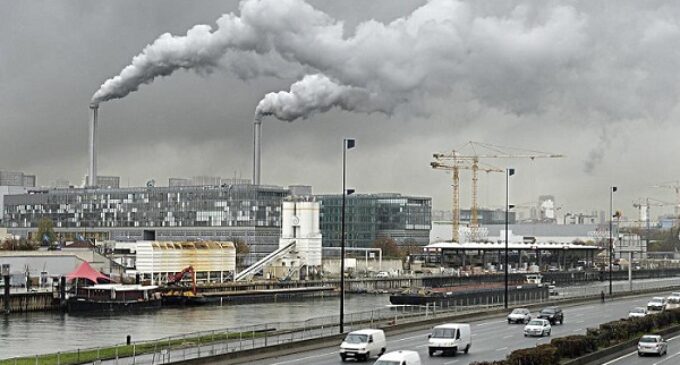Nigeria should use WHO guidelines for air quality regulation, says environmentalist

Adetoun Mustapha, an environmental epidemiologist has advised that Nigeria should use the recent WHO air quality guidelines (AQG) to align and update its air control regulations.
Mustapha, who is also the International Society of Environmental Epidemiology (ISEE) councilor for Africa, spoke to TheCable on the recently released WHO AQG.
The WHO AQG released on September 22, is the most recent in 16 years and aims to support informed decision-making and robust public health recommendations worldwide.
She said Nigeria alongside other developing countries have high concentration levels of particulate matter (PM) in the air.
She mentioned that this is dangerous for health because air pollution, even at low levels, can affect the human organs.
“Additionally, Outdoor PM levels in cities of developing countries including Nigeria are generally much higher than in developed countries because of dispersed heating with small-scale solid fuel use,” she said.
“Uncontrolled industrial emissions, and the large numbers of non catalyst two-stroke engine vehicles. Many vehicles are old and/or poorly maintained, which adds to traffic-related air pollution,
“The Nigerian government should use the new WHO AQG as a guide and align the limit values in the National Environmental (Air Quality Control) Regulations, S. I. No 64, 2014 with it and regulate PM2.5, which is not currently in the Nigerian Air Quality Control regulation.”
She said that air pollution affects almost every human organ either directly or indirectly, causing such illnesses as stroke, heart disease, lung cancer and acute respiratory diseases.
Mustapha said the new report suggests limits to minimize harm and compliance with its recommendations would protect human health.
“Air pollution is a major global public health threat that causes a range of adverse health effects, even at the lowest observable concentrations,” she said.
“The report provides suggested limits to minimize harm, offers a way to increase life expectancy and quality of life and achieving it is a great opportunity to improve public health.
“By reducing air pollution levels, countries can reduce stroke, heart disease, lung cancer and both chronic and acute respiratory diseases including asthma.”
She further stated that transitioning to cleaner energy would help tackle air pollution and climate change simultaneously.
“We know how to reduce air pollution: shift to cleaner energy, we can have cleaner and more efficient public transportation, promote walking short distances and use of bicycles.”
“There is ample evidence to strongly support government action to reduce air pollution and address climate change simultaneously.”














There are no comments at the moment, do you want to add one?
Write a comment